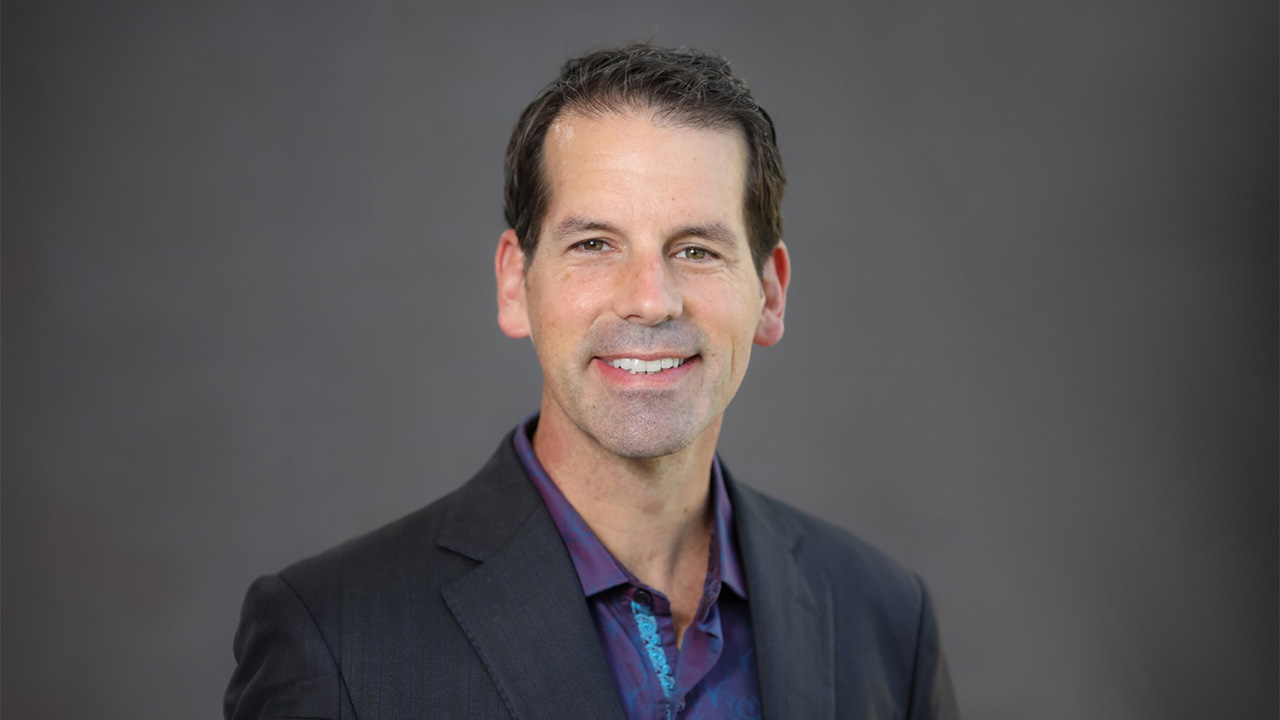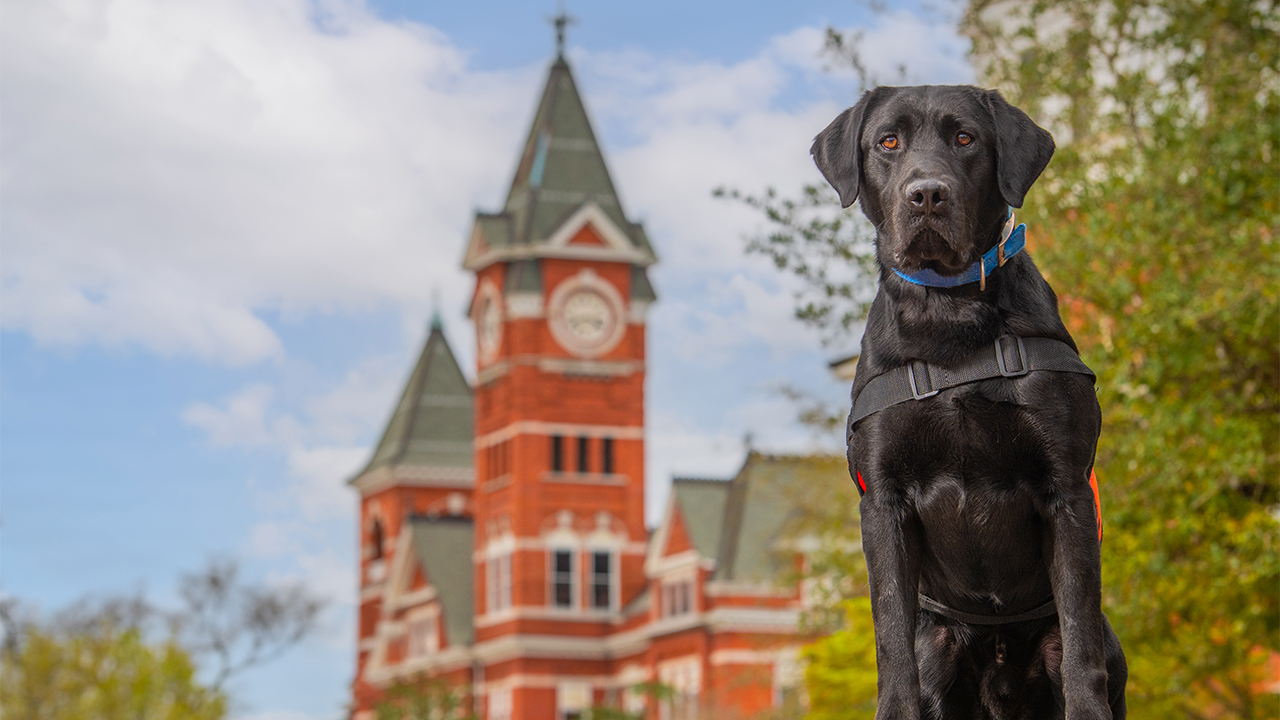content body
Growing up in a small town in Florida, Dr. Will Eward worked in kennels. The veterinarians he admired all had something in common; they were Auburn University alumni.
“My dream wasn’t just to go to vet school. It was to go to Auburn’s College of Veterinary Medicine,” Eward said.
But Eward’s aspirations extended beyond animals. In college, he found human health — and the connections between animals — fascinating. Rather than pick one passion to pursue for his career, Eward decided to do it all.
He received his doctorate in veterinary medicine from Auburn and then took an unexpected next step: Eward enrolled in medical school at the University of Vermont.
Now, Eward is the Frank H. Bassett III, M.D. associate professor of orthopaedic surgery at Duke University, where he specializes in bone and soft tissue cancers — performing surgeries and conducting research. True to his training, Eward’s patients aren’t only humans. He still practices as a veterinarian, including treating animals with his wife, Dr. Cindy Eward, a veterinarian who he met during his training at Auburn.

Auburn alumnus Dr. Will Eward is an associate professor of orthopaedic surgery at Duke University. Photo courtesy of Duke Health.
Building empathy, humility at Auburn
When asked about his favorite parts of attending Auburn, Eward isn’t sure where to begin.
“It’s such a special place,” Eward said. “I have so many fond memories of just hanging out with Cindy watching Auburn sports, eating wings, visiting the Auburn Raptor Center and taking our dogs for a walk at Kiesel Park.”
Eward’s time at Auburn was marked both by levity and rigor.
“There’s a completely different work ethic in vet school, in general, and at Auburn,” he said.
A highlight of Eward’s Auburn experience was participating in the student residency program, which required him to sleep at the hospital every other night and respond to emergencies.
Throughout his training, he learned the value of taking ample time with his patients, including by conducting thorough physical exams and patient histories. He said Auburn values, including hard work, empathy and kindness, have become cornerstones of his clinician approach.
“I learned to be a good doctor at Auburn in a way that I never would have gotten from just going to human medical school,” he said.
Eward took these transferable skills into his next step: medical school. In total, Eward spent 14 years in training —propelled by his love of learning. He can relate to students who are knee-deep in difficult training programs and has a word to the wise.
“Sometimes when you’re working really hard in school, especially in the first couple of years, you feel like you don’t have space to breathe, but you’re learning these things that are beautiful, cherished parts of what you will do forever,” he said. “I would tell any student to appreciate how special their opportunity is to do this and enjoy what they’re learning. Drink it in with glee.”

Eward treats both humans and dogs and conducts research on cancers of the bone and soft tissue.
Bringing cancer insights from animals to humans
In his current role, Eward’s typical week includes treating humans and dogs and conducting research. As a practicing physician, Eward said he feels privileged to learn from his patients.
“Often people think being a surgical oncologist must be a terrible job,” Eward said in his Duke biography. “But, I find something in each patient to admire because patients dealing with cancer develop a strength the rest of us don’t get to have.”
Eward’s motivation to help his patients is also reflected in his research that focuses on cancers of the bone and soft tissue called sarcomas.
“One of the problems with studying sarcomas is that they’re quite rare in humans,” Eward said. “If you look at a prototypical sarcoma, such as osteosarcoma, it affects about 1,000 humans per year. But this same type of cancer impacts more than 75,000 dogs per year.”
This difference in this type of cancer’s prevalence between animals poses a unique research opportunity. In Eward’s laboratory, he compares cancer across animals with the goal of accelerating knowledge discovery.
“We have sarcomas from around the world,” he said. “We have dogs, of course, but we also have whales, lemurs, tigers and sawfish, among others.”
By comparing cancer across species, Eward and his colleagues have discovered that mutations in an unexpected gene called ATRX is crucial to sarcomas. He aims to build upon these findings to develop specific treatments for people who exhibit this mutation in their tumors: solutions that will develop faster than if this research was conducted solely on humans.
“If you’re studying sarcomas in humans alone, you would have to do so over 50 years to have enough patients,” Eward said. “But, when you study it across animals, you can make those incremental gains more quickly.”

Eward conducts research focused on how to creatively degrade carcinogens in plastic that linger in the environment. Photo courtesy of Getty Images.
Exemplifying One Health aims through integrated research, practice
Eward is somewhat of a clinician and scientist jack-of-all-trades.
Besides his research focused on sarcomas, Eward has expanded his interests into reducing carcinogens. Eward is specifically interested in how to creatively degrade carcinogens in plastic that linger in the environment.
“We often hear about the environmental effects of plastic pollution, which are admittedly terrible,” he said. “But it turns out, there’s this underreported part, which is that plastics have this unique ability to trap carcinogens and bind to them.”
In his laboratory, Eward and his colleagues are investigating the potential of a certain type of bacteria, which was discovered in Japan, to break down plastic through production of enzymes. He hopes this line of largely untapped research can contribute to decreasing carcinogens.
“I don’t think we’ve even begun to scratch the surface of how these little particles of plastic waste that are in our soil, in our water and in the fish we eat are actually making the cancer problem worse.”
For Eward, his diverse research interests and dual clinician roles are all interconnected. His perspective is aligned with the Centers for Disease Control and Prevention’s One Health concept that emphasizes the benefits of understanding the links between humans, animals and the environment — a priority within Auburn’s College of Veterinary Medicine.
While Eward occupies many of these different spheres — researcher, physician and veterinarian — every now and then, the worlds collide.
“One of the things I love most is when I’m meeting a new patient and they say, ‘I’m really glad I get to see you because you’re a veterinarian, and I love my dog’s veterinarian,’” Eward said. “They equate being a veterinarian with kindness, with compassion, with service. And they should — that’s a reputation that has been built up over many generations of veterinarians. I’m so proud to be a part of that.”
Improve the health of people and pets.
Dive into One Health.



